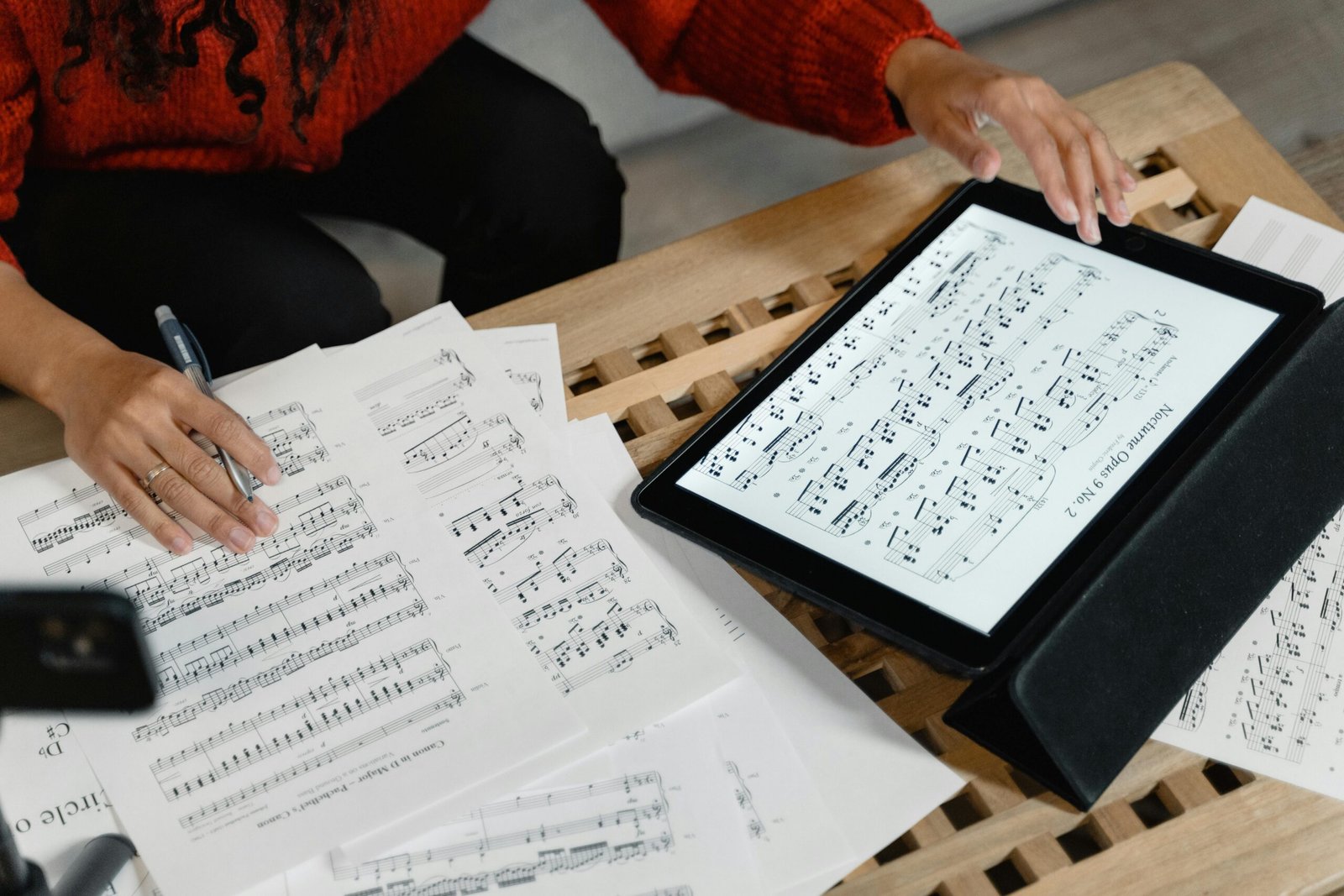Music is a craft that blends natural ability with relentless effort.
Some people seem to have an innate musical gift, effortlessly picking up melodies or mastering complex rhythms. But even the most talented musicians need to refine their skills.

No artist reaches mastery without dedication, discipline, and an openness to learning. Growth in music is an ongoing journey, one that requires focus and intentional practice. Whether you’re just starting or have years of experience, there is always room to improve.
This roadmap will guide you through essential steps to sharpen your craft and become the best version of yourself musically.
What Are Your Goals?
Musicians who make the most progress don’t practice aimlessly; they work toward well-defined goals. Without clear objectives, it’s easy to fall into repetitive practice routines that lack direction. Instead of just playing familiar pieces over and over, consider what you truly want to achieve. Do you want to improve your technical ability, expand your range, or learn an entirely new instrument? Defining specific, measurable goals helps you stay focused and see tangible improvements over time.
Pursuing Formal Education in Music
Many musicians shy away from formal education, assuming it’s unnecessary if they already have talent. But even the best musicians can benefit from structured learning. Studying music formally deepens understanding, sharpens technique, and introduces students to advanced concepts they might not encounter on their own. Music programs cover everything from theory and composition to performance and pedagogy, offering valuable insights that can transform a musician’s approach.
For those with busy schedules, pursuing a master’s in music education online is an excellent option. Online programs allow musicians to continue working or performing while expanding their knowledge. The flexibility of remote learning makes it possible to receive a high-quality education without putting other commitments on hold.
Developing a Consistent Practice Routine
Talent without discipline won’t take a musician very far. The best players in the world have one thing in common: they practice consistently. However, it’s not just about practicing more—it’s about practicing better. Mindless repetition doesn’t lead to improvement. Instead, a structured approach that targets weaknesses and builds on strengths is essential.
A good practice routine should balance technique, repertoire, and creative exploration. Start each session with warm-up exercises to develop finger strength and flexibility. Then, focus on a specific skill or challenge, such as mastering a difficult passage or refining articulation. Finally, dedicate time to playing full pieces or experimenting with improvisation. Regular, intentional practice leads to noticeable improvements much faster than unfocused playing.
Expanding Your Repertoire
Sticking to the same songs or styles can stunt a musician’s growth. Learning new pieces, especially those outside your comfort zone, introduces fresh challenges that develop different aspects of your playing. Classical musicians can benefit from exploring jazz, while rock musicians can gain new skills from studying blues or folk music. The broader your repertoire, the more adaptable and creative you become.
Playing different genres also improves musicianship by enhancing rhythmic versatility, harmonic understanding, and technical fluency. It keeps practice sessions exciting and ensures that you continue evolving as a musician.

Training Your Ear
Great musicians don’t just rely on sheet music; they develop a strong ear for music. Ear training is the ability to recognize pitches, intervals, chords, and rhythms by listening rather than reading. It enhances improvisation, helps with learning songs quickly, and makes playing with others more intuitive.
There are many ways to improve ear training. Simple exercises like identifying intervals, transcribing melodies, and singing scales help refine this skill. Listening actively—paying close attention to different instruments, harmonies, and rhythmic patterns—strengthens auditory awareness. Over time, a well-trained ear makes a musician more expressive and connected to the music they play.
Performing Regularly
Practicing in isolation is important, but music truly comes to life when shared with an audience. Whether playing in front of family and friends, performing at open mic nights, or taking the stage at a major venue, live performance is one of the best ways to grow as a musician. The experience teaches valuable lessons that can’t be learned in a practice room.
Playing live helps develop stage presence and confidence. At first, nerves might make performances feel overwhelming, but the more you put yourself out there, the more comfortable you become. It also forces you to be adaptable—unexpected mistakes, technical difficulties, or audience reactions require quick thinking and composure. Musicians who perform regularly develop resilience and learn to stay in control, even under pressure.
Beyond personal growth, performing builds connections. Engaging with other musicians, networking with industry professionals, and receiving feedback from audiences can open doors to new opportunities.
Seeking Feedback and Mentorship
No musician improves in isolation. Seeking feedback from teachers, mentors, or even peers is one of the fastest ways to grow. Sometimes, we don’t hear our own mistakes or recognize areas that need improvement. An experienced mentor can point out weaknesses, suggest techniques, and offer insights that may not be obvious.
Criticism can be difficult to hear, but constructive feedback is a gift. Instead of seeing it as negative, approach it as an opportunity to refine your skills. Teachers, fellow musicians, and even audience members can provide perspectives that help you improve. Surrounding yourself with skilled musicians who push you to do better is invaluable. Learning from others accelerates progress and provides motivation to keep striving for excellence.
Becoming a better musician isn’t about chasing perfection—it’s about embracing the process. Every wrong note, every challenge, and every breakthrough adds to your growth. The musicians who truly excel aren’t just the most talented; they are the ones who stay curious, push their limits, and never stop learning. No matter where you are in your journey, the key is to keep moving forward. Stay disciplined, stay inspired, and, most importantly, stay passionate. The music you create today is just one step toward the artist you’ll become tomorrow.






